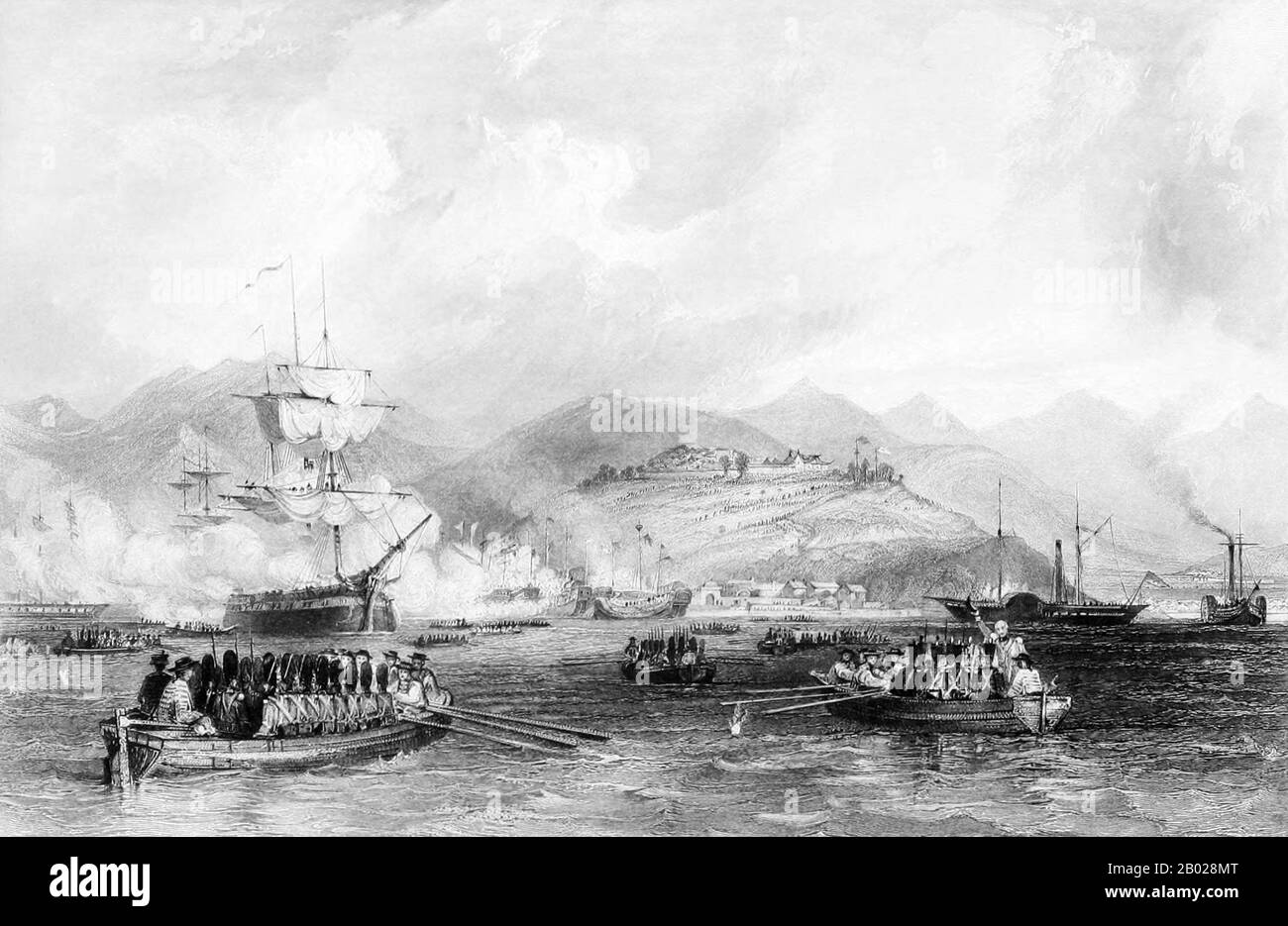The first capture of Chusan by British forces in China occurred on 5–6 July 1840 during the First Opium War. The British captured Chusan, the largest island of an archipelago of that name. The First Anglo-Chinese War (1839–42), known popularly as the First Opium War or simply the Opium War, was fought between the United Kingdom and the Qing Dynasty of China over their conflicting viewpoints on diplomatic relations, trade, and the administration of justice. Chinese officials wished to stop what was perceived as an outflow of silver and to control the spread of opium, and confiscated supplies

Image details
Contributor:
CPA Media Pte Ltd / Alamy Stock PhotoImage ID:
2B028MTFile size:
49.6 MB (1.4 MB Compressed download)Releases:
Model - no | Property - noDo I need a release?Dimensions:
5164 x 3357 px | 43.7 x 28.4 cm | 17.2 x 11.2 inches | 300dpiDate taken:
20 July 2013Photographer:
Pictures From HistoryMore information:
This image could have imperfections as it’s either historical or reportage.
The first capture of Chusan by British forces in China occurred on 5–6 July 1840 during the First Opium War. The British captured Chusan, the largest island of an archipelago of that name. The First Anglo-Chinese War (1839–42), known popularly as the First Opium War or simply the Opium War, was fought between the United Kingdom and the Qing Dynasty of China over their conflicting viewpoints on diplomatic relations, trade, and the administration of justice. Chinese officials wished to stop what was perceived as an outflow of silver and to control the spread of opium, and confiscated supplies of opium from British traders. The British government, although not officially denying China's right to control imports, objected to this seizure and used its newly developed military power to enforce violent redress. In 1842, the Treaty of Nanking—the first of what the Chinese later called the unequal treaties—granted an indemnity to Britain, the opening of five treaty ports, and the cession of Hong Kong Island, thereby ending the trade monopoly of the Canton System. The failure of the treaty to satisfy British goals of improved trade and diplomatic relations led to the Second Opium War (1856–60). The war is now considered in China as the beginning of modern Chinese history.